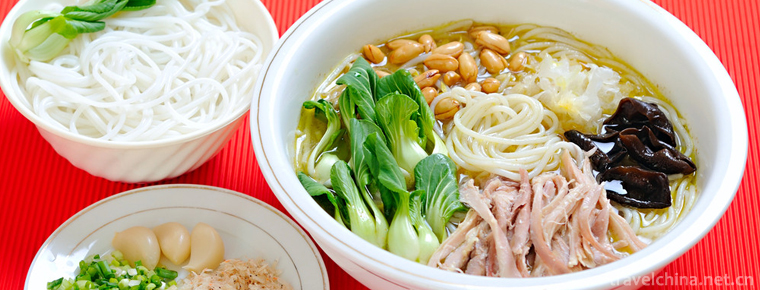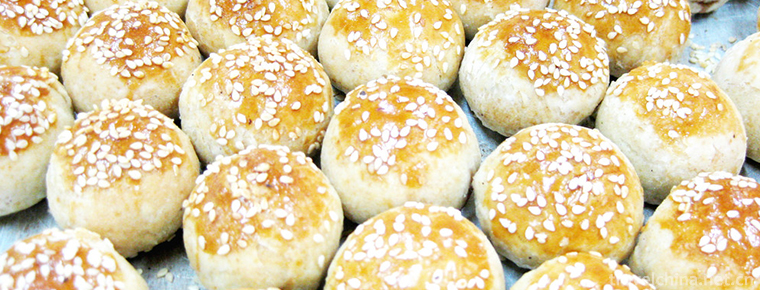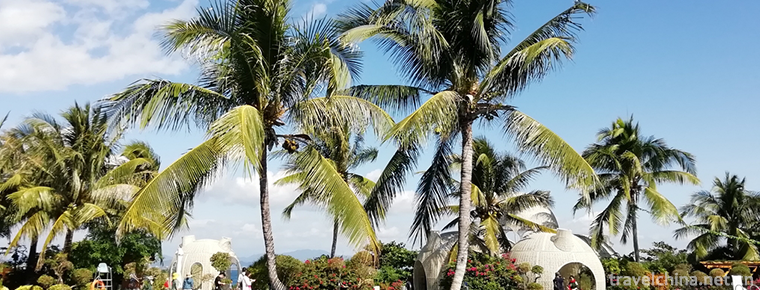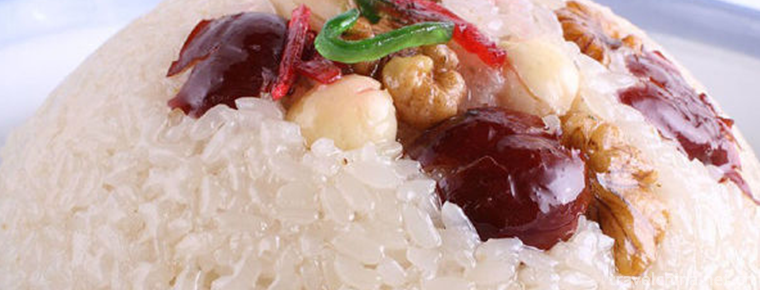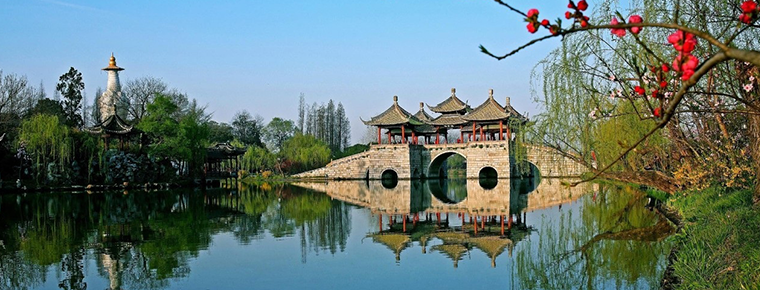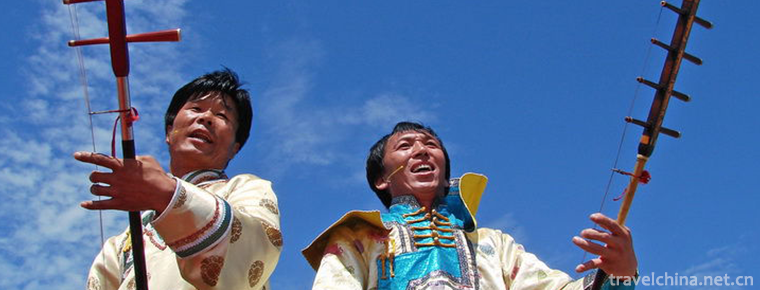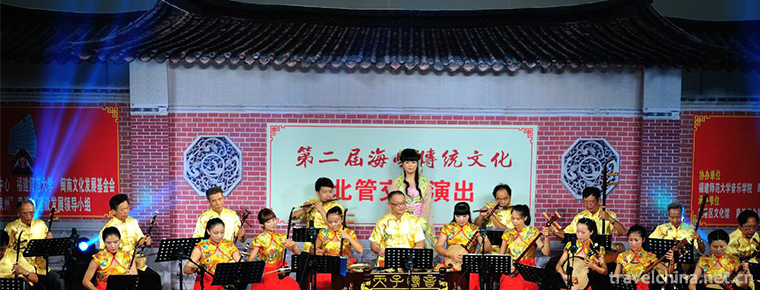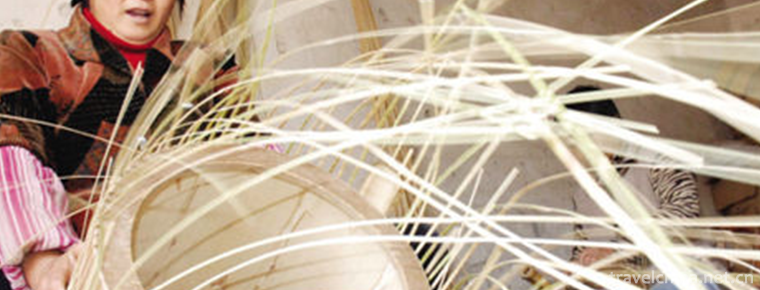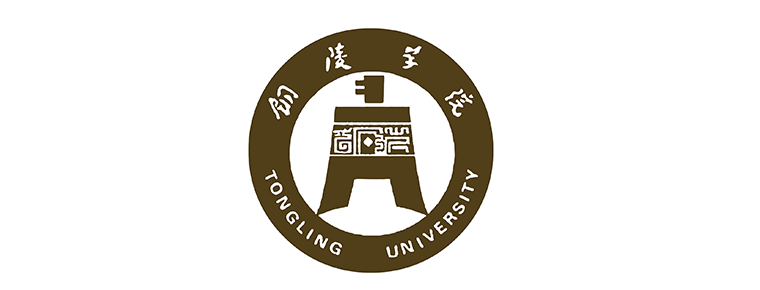Ancient songs of Miao Nationality
Miao Ancient Songs, local traditional folk literature in Taijiang County and Huangping County of Guizhou Province, is one of the national intangible cultural heritage.
The contents of Miao's ancient songs are all-encompassing, from the birth of the universe, the origin of human beings and species, the creation of heaven and earth, the torrential floods in the early period of the people, to the Miao's great migration, the ancient social system and daily production and life of the Miao people, and so on. They have become the summation of Miao's ancient myths.
On May 20, 2006, Miao ancient songs were listed in the first batch of national intangible cultural heritage list with the approval of the State Council.
historical origin
In ancient times, the Miao people suffered a lot from war. In order to avoid war, they migrated many times. Because they were afraid that all kinds of information would be obliterated by history, the wise ancestors of the Miao people hid their history in the elegant, empty and heroic ancient songs, and kept it in the memory of the nation.
The Miao Ancient Song was gradually developed on the basis of primitive myths and legends. The ancient Miao people created an epic in their long-term productive labor.
Cultural characteristics
Content classification
The contents of Miao's ancient songs are all-encompassing, ranging from the birth of the universe, the origin of human beings and species, the creation of heaven and earth, the flood and famine period, to the Miao's great migration, as well as the Miao's ancient society, material production, daily life and so on. The total number of Miao's ancient songs is more than ten thousand lines. Different versions are circulated in different regions, and even different singers sing different versions. The Miao ancient songs circulated in Taijiang County, the Miao and Dong Autonomous Prefecture in southeastern Guizhou Province are the most typical and representative version of the Miao ancient songs.
As for the classification of Miao's ancient songs, they were divided into four groups and thirteen pieces in the past. According to the latest research, Miao ancient songs should be composed of five groups and twenty songs. According to statistics, the song portrays more than 100 people with names. Some of them are full-bodied and have distinct personalities, which can be regarded as the typical art with flesh and blood.
1. The Song of Creating Heaven and Earth: The Praise of Miao's Ancestors for Conquering Nature
This group of ancient songs, including "Opening up Heaven and Earth", "Gold and Silver Transport", "Pillar and Supporting Heaven", "Foundry Sun and Moon" four songs. In the song, he sings, "When we look at ancient times, which one is the earliest? Which is the oldest? He's going to open the sky, he's going to build the earth?' The issue of the creation of all things in the world was clearly raised at the outset. Next, the cloud and mist gave birth to two giant birds, one called Yue Tiao and the other called Ko Ti. It was Le Ti and Ko Ti that hatched heaven and earth. But, "Heaven has just been born, the sky is white mud; the earth has just been born, the ground is black mud:" "Heaven has just been born, like a handful of skips; the earth has just been born, like a big sun mat?" It was the man of God who split the heaven and the earth with a huge axe: "The man who cut the heaven and the earth is a good man. He comes from the East and chops the heaven and the earth with an axe. Then, a god named Fufang appeared: "Fufang old man has nine legs, eight pairs of arms, can eat nine baskets of fish, can eat nine troughs of bamboo, mouth bite dead horse, waist pole hard like steel, to a top of the sky, to step on the ground, genius ascended, the ground came down, the wind blows back and forth, the birds fly freely, the rain falls, the trees grow up, people live on the ground, do not bend again." Waist. " After the opening of the world, new problems arise again: "No sun in the day, no moon in the night, the sky is grey, the ground is black lacquer; the yak does not fight, the girl does not marry; the field is not warm, the crops do not grow." The three ancient songs "Gold and Silver Transport", "Pillar and Supporting Heaven" and "Foundry Sun and Moon" focus on the great achievements of Baogong, Xionggong and Qigong Danggong. They carry gold and silver, build pillars of gold and silver, support heaven and earth, and cast sun and moon. Four ancestors invited the goddess Yuedai and Yueyou to help them. Together, they made twelve suns and twelve moons and hung them in the sky. What they didn't think of was, "The sun and the moon are twelve pairs, running day and night, drying the fields like boiling water, drying the stones like sticky paste, drying the slopes like withered grass and trees." Finally, it was Samza, the archer, who shot eleven suns and eleven moons, that made people live a normal life.
This group of ancient songs vividly depicts the history of the beginning of the universe, the chaotic period of heaven and earth, the creation of heaven and man, and the conquest of nature. In ancient songs, the formation of heaven and earth is full of fantastic imagination. In ancient songs, the gods and men Baogong, Xionggong and Qigonghe are actually the incarnations of human ancestors. In many national myths, this is an era of God-Man co-governance, and it is difficult to distinguish between God and Man. In Miao people's minds, Baogong, Xionggong and Qigong are both gods and human beings. This group of ancient songs is a tribute to the Miao ancestors'victory over nature, and also provides vivid materials for us to understand the life of human childhood.
Maple song: a bold guess about
the origin of species
This group of ancient songs, including "Liquidambar Species", "Lidong Yixi", "Planting Liquidambar Trees", "Cutting Liquidambar Trees" four songs. The content of Maple Tree Species vividly describes the relationship between the origin of all things and human beings and Maple Tree. When talking about the origin of human beings, the song sings: "There are also maple trunks, and the heart of maple trees, the trunk of a sister list, the heart of a sister stay." Mei Bang and Mei Liu are transliterations of Miao language. Mei Bang is "mother" and "H Kuang Butterfly" is originally meant to be "mother of butterflies". The ancient Miao song holds that people, animals and gods have a mother, she is the mother of butterflies. Ancient songs depict how maple trees gave birth to mothers of butterflies, and how mothers of butterflies gave birth to humans, animals and giant gods. "Ploughing East and Drawing West" reflects the pioneering life of ancient human beings in pioneering and creating fields: Planting Maple Trees reflects the difficult process of planting Maple Trees and cultivating various plants by the ancestors of Miao people.
The content of Cutting Maple Trees is unique and deserves special attention. The lyrics of Cutting Maple Fragrance Tree involve the handling of the tribal affairs of the ancient Miao people, focusing on the story of the old man's judgment of the case. Lao Li was the elder who presided over justice in ancient Miao tribes. The lyrics say that the maple tree in the Miao stockade has caused conflicts and disputes, so please deal with the old to judge the case. The first time the old man was invited, he called for killing pigs and drinking as soon as he entered the stockade.* He was full and drunk and could not say a word because of his hard tongue. We have to invite another old man. The old man came riding a bull tiger and was very prestigious. As soon as he entered the stockade, he called for drinking and killing cattle. He was full, drunk and drowsy. Later, we asked Wang and Leo to be the elders, which was the end of the case, cut down the maple tree. The maple tree has been cut down. Strangely, the roots have turned into cuckoos and orioles, the tops into parrots, the leaves into swallows, the scars of treetops into cicadas, and the chips into fish species. This ancient song, with a humorous style, describes the social management mechanism and the way to deal with tribal disputes during the Miao tribal alliance period, and at the same time makes bold guesses about the origin of some animals.
Generally speaking, the content of this group of ancient songs is rather complicated. It can be concluded that in the long-term oral transmission, this group of ancient songs has undergone many re-creation. In different times, the singers have added different contents to it. However, the core content of this group of songs is still the early human conjecture of the origin of all things, and the lyrics are sparkling with the light of romanticism and idealism.
3. Butterfly Song: Exploring the Origin of Human Ancestors
This group of ancient songs, including "Mei Bang Mei Liu", "Twelve Eggs", "Brothers Separation", "Killing the centipede", "Seeking the Drum", "Searching for the Yak", "Searching for the Sacrifice Clothes", "Hunting for the ancestors" eight songs.
"Mei Bang Mei Liu" and "Twelve Eggs" narrate that maple trees give birth to butterflies, butterflies give birth to twelve eggs, twelve eggs just hatch Jiang Yang, Leigong, tiger, water dragon and so on, and put forward the hypothesis that butterflies are the common mother of human beings, animals and gods.
In Brothers'Separation, the lyrics change. It tells us that Jiang Yang, the ancestor of mankind, lived with his brothers in the biological world after he was born. However, Jiang Yang's brothers are too many, "many people strive for housekeeping, Jiang Yang's brothers, each want to be a brother, everyone strives for big, you when I do not comply, I when you do not accept." The result was a fight, and eventually the brothers had to separate. "Killing the Centipede" tells the story of the conflict between Jiang Yang, the ancestor of mankind, and the centipede, and the victory over the centipede. These two ancient songs are mainly about the early human suffering.
Four ancient songs, Searching for Wood Drums, Searching for Yaks, Searching for Sacrifice Clothes and Hunting for Ancestors, tell the origins of various sacrificial rituals and sacrificial articles of the Miao people. These four ancient songs can be sung in the wine court, but mainly in the family ancestor worship, to a large extent, belong to the sacrifice, mainly by the wizard or priest in the sacrificial activities.
This group of ancient songs, rich in content, but the focus is to explore the origin of human ancestors.
4. Flood Song: Remembering the
Relative Marriage
This group of ancient songs, including "Flood" and "Brothers and Sisters Marriage" two songs.
"Flood in Heaven" tells the story of mother butterfly's twelve eggs, brothers such as Jiang Yang, Lei Gong, Shuilong and Tiger hatched. After the conflict, Lei Gong separated his family. Lei Gong went to heaven, the water dragon went down into the deep pool, the tiger went into the forest, and Jiang Yang shared the flat land. With the flat land, Jiang Yang, the ancestor of mankind, began to cultivate crops. Rain is needed to grow crops. Thus, there was a contradiction between Lei Gong and Jiang Yang. In order to punish Jiang Yang, Lei Gong launched a torrential flood. For a time, the flood was torrential, the mountains collapsed and the rice seeds were buried. Jiang Yang could not bear it, and launched a war with Lei Gong. In the end, Jiang Yang used his wisdom to defeat Lei Gong, and the torrential flood finally subsided.
Jiang Yang conquered the flood, only to find that human beings were almost extinct, bare slate, leaving only their brothers and sisters. "Brothers and Sisters Marriage" tells the story of Jiang Yang's brothers and sisters worrying about the reproduction of human beings after the torrential flood. They tried their best, but they could not find their spouses. After verification by various means, the conclusion is that if human beings want to reproduce, they must marry siblings. Finally, "Jiang Yang married his sister as his wife" began the difficult process of Rebuilding Human beings. What they didn't expect was that after their brother and sister got married, they "gave birth to a meat dumpling, which is like a torch in autumn." The consanguineous marriage has brought proper punishment to the brothers and sisters. Jiang Yang looked very angry and took a machete and said, "Chop a meat dumpling cub, full of nine dustpans, and scatter them among the nine mountains."
This group of ancient songs, with the disaster of the extinction of mankind as the prelude, focuses on recalling the human blood marriage; the core of the ancient songs can be seen as an interpretation of the ancient blood marriage of people in the era of extramarital marriage, a kind of vivid reflection.
5. The Song of Traveling through Mountains and Rivers: Searching for New Living Space
Moving westward along the river and Moving westward along the river are two relatively independent songs of the Miao nationality. After his brother and sister got married, Jiang Yang gave birth to a meat dumpling. Jiang Yang looked very angry. He cut the meat dumpling into pieces and threw it into the ditch. Strangely, these meat balls grew into nine parents. Parents here refer to men and women in general. Since then, men and women have been married, and human beings have multiplied rapidly.
The rapid reproduction of human beings has brought new problems to their own survival: "There are too many birds to live in, too many people to live in stockades." It's hard to cook in a fire pond, to dump millet, to make sure your feet are in good shape, to open a family, to spend money. Seven father-in-law, one hoe, one dig ten, etc., are very sad days; six mother-in-law, one car, one Artemisia needle co-spinning thread, one person is spinning ten people to see, it is really too difficult! (Six, seven, ten here describe many, not the exact number). "So," six parents climb mountains, move west to find a good life. The ancestors of the Miao nationality were forced to start the massive westward migration, and finally defeated the fierce animals and animals, broke through the difficulties and obstacles, completed the feat of westward migration, and found a new living space.
The whole Miao ancient songs can be divided into five groups, each of which can be written separately, but among different ancient songs, there is coherence. Generally speaking, Miao's ancient songs are grand in structure and rich in content. They systematically narrate the social life of Miao's ancestors and praise their great cause of creation.
artistic characteristics
Miao's ancient songs, also known as "Miao's epic", consist of five major parts: gold and silver songs, ancient maple songs, butterfly songs, torrential floods and the westward migration of the river, totaling 15,000 lines. Mysterious ancient songs have been sung from the birth of the universe, the origin of human beings and species, to the Miao people's great migration, Miao people's social system and daily life. Its length is vast and its content is all-encompassing.
Ancient songs are mostly sung in Miao drum clubs, wedding ceremonies, family and friends gatherings, festivals and other occasions. Singers are mostly old people, wizards, singers and so on. Ancient songs are characterized by five-character style, interrogating and answering songs, singing bone songs and flowers alternately. Poetry is narrated in the way of comparison between ancient and modern. Each Lyric can be repeated.
The classification of Miao ancient songs is different. According to the publication and collection of Miao ancient songs, from the perspective of customary law, they can be divided into four categories: the first is mythological ancient songs; the second is historical ancient songs; the third is litigation ancient songs; and the fourth is marriage ancient songs. The form of singing is in the form of disc songs. Generally, four people form two pairs of pairs of singing groups. First, Party A asks questions, and then Party B replies to Party A's questions. After Party B answers, it immediately raises questions, and Party A replies to Party B's questions, and then answers them again and again, so on, until the end.
The whole poem is a five-character structure, with rhyme in Miao language and more than 15,000 lines. It has created more than one hundred famous and famous characters, full of romanticism and idealism. Many rhetorical devices, such as metaphor, exaggeration, parallelism, personification and rhetoric, are used in the poems to vividly reflect the explanations of the Miao ancestors on the heaven and earth, all things and the origin of human beings, and the achievements of the people in their arduous struggle to create human history.
Miao's ancient song is an epic with unique artistic characteristics. The lyrics of Miao's ancient song are full of romantic and idealistic colors and give people a strong artistic appeal by using many ways of expression, such as metaphor, exaggeration, parallelism and personification.
In terms of expression techniques, Miao's ancient songs have many unique features: first, the language is concise and clear, popular and plain. Miao's ancient songs belong to the five-character style. Only when they are translated into Chinese, they have the five-character style, the seven-character style and the Guangyan style. The original singing language, retaining a small amount of ancient language, mostly close to spoken language. There are a lot of parallels in the lyrics, such as "walk and walk" and "line and line repeat line" in the scarf of "Song of Trekking Mountains and Waters". They have a musical sense. They can read aloud and memorize the form beauty of the two lyrics, which often gives the listener the enjoyment of beauty. The second is rich imagination and magnificent momentum. Miao's ancient songs are full of fantastic ideas and bring a special artistic experience. In the Song of Pioneering the Heaven and the Earth, the sky is said to be "like a handful of skins" and the earth is "like two seats of Zhang Da-ri". It also imagines casting the sun and the moon with gold and silver. As a result, twelve suns and twelve moons are created on a whim. Too many suns and moons are created, so people suffer. Eleven suns and eleven moons are shot from the sky. This fantastic imagination has great artistic charm. As the "Foundry Sun and Moon" said, Miao ancestors, nine mountains as stoves, eight valleys as bellows, to melt gold and silver, cast the sun and moon; they used rocks as hammers, mountains as anvils, to create the unique imagination of the sun and moon, on the one hand, the scene of the Miao ancestors casting the sun and the moon was magnificent, on the other hand, to give the audience unlimited imagination and beautiful experience: In "Gold and Silver Transport", the scene of Xiu Rong splitting mountains and rivers is depicted. He says that there is a pair of diagonals on Xiu Rong's head, and he "collapses with a pinch of hills and falls with a pinch of land". The water is rolling and there are rivers everywhere''. This kind of depiction has the potential to swallow mountains and rivers.
Inheritance mode
The inheritance of Miao's ancient songs is generally divided into three ways: family inheritance, teacher-apprentice inheritance and self-study.
Family heritage. In some Miao inhabited areas, there are strict restrictions on singing ancient songs. There are no big gatherings and no singing is allowed. To learn ancient songs, the best way is to have old people at home who can sing them and learn from them. Therefore, family inheritance has become an important way to inherit ancient Miao songs. Wizards, Li Lao and Zhai Lao are all likely to teach Miao ancient songs to future generations. However, the family teaches ancient songs. Generally, men do not pass on the song to their daughters, and men are limited to their descendants. Few people pass them on to their sons-in-law and brother-in-law.
Master-apprentice inheritance. A young Miao nationality, who really wants to learn ancient songs, has no singers in his family, so he has to learn art from teachers. As a singer, especially as a wizard, if someone repeatedly requests a teacher to learn art, after his examination and approval, he can hold a solemn apprenticeship ceremony, formally accept them as his apprentices, and impart Miao ancient songs to them. However, male singers generally do not accept female disciples.
Self-taught. There are many festivals of Miao nationality. According to incomplete statistics, there are more than 500 festivals of Miao nationality in different places. Every festival, the Miao people will inevitably gather, gathering, to sing ancient songs. Frequent singing activities of ancient songs have created good conditions for people to learn ancient songs by themselves. Especially, some intelligent women often steal ancient songs on such occasions. With some achievements in self-study of ancient songs, you can participate in singing. The singing effect is good, which is naturally sought after by the audience. A self-taught person who has become a talented person in ancient songs will get more recognition from the audience if he sings more times and the level of singing is constantly improved. Someone will ask him to sing and gradually grow up to be a true singer.
Singing tradition
Celebration Singing Tradition
Ancient songs are sung in important activities of the Miao people, such as "drum club sacrifices", wedding and funeral ceremonies, gatherings of relatives and friends, and folk festivals. Miao people believe that funerals and marriages, gatherings of relatives and friends, folk festivals, singing ancient songs, can get the protection of ancestors, avoid disaster, family harmony, prosperity and happiness of descendants. It even believes that singing ancient songs at funeral ceremonies can also serve as a guide for the dead, so that the dead can return to the place where their ancestors lived, and the fallen leaves can return to their roots.
The most solemn ancient song singing activity of the Miao people is the "Drum Society Festival". The so-called "drum society sacrifice" is a regular ancestor worship activity of the Miao people. The ritual of ancestor worship is very complicated. Every time a ceremony is held, singers are invited to sing ancient songs. They believe that if ancestors do not sing ancient songs, they will be punished by their ancestors; if ancestors sing ancient songs, they will be protected by their ancestors and bless the harvest of crops and the well-being of the people. Ancient Miao song, to a large extent, is a song to celebrate the great cause of ancestors. If we do not sing ancient songs in ancestor worship ceremony, it will not be an ancestor worship activity.
In addition to major festivals, funerals, weddings, family and friends gatherings, there are a large number of small-scale ancient songs singing activities in Miao area. For a long time, because of the information blockade, the lack of cultural activities and the leisure season, people will spontaneously gather in the wizards, elders and villages to listen to them sing ancient songs.
From the birth of the universe, the origin of human beings and species, Miao's ancient songs have been sung to the ancient torrential floods and ethnic migration, including Miao's ancient social system and daily production and life, etc. Therefore, singing Miao ancient songs, on the one hand, is entertainment, on the other hand, it is also recalling the national development and entrepreneurship process, to teach you life and production knowledge. Once the singing activity begins, it is difficult to finish. It often takes several days and nights to sing. The audiences gathered around often listened fascinatingly. When they heard the happy places, they burst into laughter one by one. When they heard the sad places, they inevitably burst into tears and sighed.
Singing taboo
There are many taboos in the singing of ancient Miao songs. For example, "Flood in Heaven" can not be sung in peacetime, and can only be sung in the wild, not at home. Otherwise, it would be disrespectful to ancestors and would desecrate their gods. "Brothers and Sisters Marriage" can not be sung casually, let alone children. In the Miao people's view, siblings'marriage is a compulsory act. The purpose of the day is to save human beings. Brothers and sisters marriage itself as consanguineous marriage is not worth publicizing. There are also some ancient songs with strong religious color, and not everyone can learn to sing. Some ancient songs sung in sacrificial activities can only be sung by wizards.
In short, in Miao villages, singing ancient songs is more sacred. Some ancient songs can only be sung in special occasions such as wedding and funeral ceremonies and religious places, otherwise they will be taboo.
Singing way
In the actual scene of singing, Miao's ancient songs usually include the bones, flowers, phrases, interludes and so on. "Gegu" is a concept relative to "Gehua", which is called "hsongdhxak" in Miao language. Hsongd means bone; hxak means song. From this we can see that "hsongdhxak" is actually the skeleton and skeleton of the song, so it is called "the skeleton of the song". The main function of the ancient song is to narrate specific things.
"Gehua" is a concept relative to "Gegu". Miao language is generally called "bangxhxak", or "hxakbangx". Bangx means flower. The former is translated literally into song and flower while the latter is translated literally into flower song. There are two main reasons why the ancients of ancient songs are called song flowers or flower songs. One is that when singing ancient songs, it is a kind of ornament; the other is that it focuses on lyrics, such as the fragrance and beauty of flowers.
In the narrative process of Miao's ancient songs, set phrases are not only the symbol of dividing each song into several parts, but also the connection of each part or two groups of the contents sung by the couples, suggesting that the other side of the couple will turn to the "signal" they sing. Sometimes set phrases and songs are interwoven. It has both the function of succession from top to bottom, but also the content of expressing self-humility and praise to the other side. 。
In the process of ancient songs singing, when one side sings flowers or idioms, the other side can have a short "interlude singing". Its content mainly expresses the approval of the other party's answer or the objection to the question.
Interlude singing is different from singing flowers and formulas: formulas are after answering each other's questions and asking their own questions, while song flowers are before the other party has asked questions and the other party is ready to answer them. But the interlude is "when one side sings flowers and phrases," when the tone is low, generally not higher than the other side, in order to show respect. This is in terms of the singing period, if the content is concerned, the interpolation is basically the same as the singing flowers.
Inheritance and protection
Inheritance significance
The Ancient Miao Song plays an important role in Miao's social history. It is a typical representative of Miao's oral literature and an encyclopedia of Miao's ancient society. Besides its historical, ethnological, philosophical and anthropological values, it also has outstanding values in education, aesthetics and entertainment.
Ancient Miao song is an encyclopedia of ancient Miao society. It has many research values, such as history, ethnology, anthropology, philosophy, literature and so on.
I. Visualized Materials for the Study of Ancient Thoughts
Many Miao compatriots believe that the history of ancient Miao songs is mostly true and believable. This is not unreasonable. Strictly speaking, Miao ancient songs are myths and legends, but they do reflect the social life of the ancient Miao people. For example, the description of Miao's ancestors'social form and various inventions and creations in the Song of Pioneering Heaven and Earth, although some places use exaggerated expression techniques, it makes people feel authentic and credible, and provides rich visual materials for people to understand ancient society. Again, the contest between Jiang Yang, Leigong and Shuilong reflects that primitive people learned to use fire to conquer and control nature, which has certain historical authenticity.
Ancient Miao songs truly record the world outlook of Miao ancestors. According to the ancient song, the universe was born of clouds and mists. Ancient songs depict many gods, but it is believed that clouds and mists were the mother body before the creation of heaven and earth, and then the emergence of gods, it is these earliest gods that transformed the world. So where did God come from? The ancient singer said, "Cloud comes to bamboo, fog comes to bamboo, Ke Ti and Yue Ti are born at the same time." "Kotiga, joy and embrace, heaven and earth are born again." Obviously, these gods were born in the evolution of cloud and mist. Ancient songs talked about the emergence of matter and mist, to the formation of heaven and earth, and from the formation of heaven and earth, to the emergence of all things, the emergence of human beings. This shows that, on the one hand, Miao ancestors recognized the existence of God as theists; on the other hand, Miao ancestors believed that God was born from the material world. Here, it clearly shows the world outlook of the Miao ancestors. It can be considered that the ancient Miao songs shine with the glory of simple materialism.
In the Miao ancient songs, the simple materialism of the Miao ancestors is constantly developing. They affirm that the world is material and that there is God in the world. Then they affirm that man can create tools and use them to defeat God. This kind of thought that man is bound to win over heaven also belongs to simple materialism. It is particularly noteworthy that the ancient songs say that maple trees give birth to mother butterflies, mother butterflies are the common mother of human beings, animals and gods, which vividly illustrates the fact that human beings are separated from the animal kingdom. As a nation, it is remarkable that ancient ballads can depict the origin of human beings in this way. This is not just a naive guess, but a philosophical idea of evolution. Miao's ancient songs provide us with abundant visualization materials for studying people's thoughts in ancient society.
2. Artistic portrayal of
Miao's westward migration history
Ancient Miao songs describe the movement of Miao ancestors moving westward in a large amount of space. In the history of Miao people, the movement of moving westward was a major event that affected generations and even decades of people. How to look at the Miao people's westward migration and what impact it had on the ancient Chinese society is an important topic in the study of history.
The Song of Passing through Mountains and Waters is a vivid description of the history of Miao's westward migration. In the song, the ancestors of the Miao people started from the Oriental "Jiangxi fruit" and arrived at Dongting Lake from the Hanjiang River. Then they went up the rivers of Zishui, Xiaoshui and Xiangjiang, and entered today's southeastern Guizhou through the Rongjiang and Xunjiang valleys. These contents are very valuable for studying the history of the Miao ancestors'westward migration. Some ancient place names mentioned in the ancient songs can correspond to the current place names. Ancient Miao songs give us a map of Miao ancestors'westward migration.
3. Window to Understand Miao's Social Customs
In ancient Miao songs, a large number of Miao social customs are recorded, from birth, marriage and funeral, naming, witchcraft, taboos, diet to production customs, almost omnipresent. These customs not only have a wide and profound impact on the social life of the Miao people, but also affect the social life of the neighboring ethnic groups. Through Miao's ancient songs, we can have a deep understanding of Miao's social customs.
Ancient Miao songs provide rare information for the study of Miao marriage history. For example, the description of brother and sister's marriage in ancient songs not only tells us that it is contrary to common sense, but also tells us that it is inevitable and natural. Blood marriage is a marriage system that every nation has experienced in its history. The transition from consanguineous marriage to exogamy is a great progress of mankind. The reflection of Miao's ancient song on consanguinity marriage reflects the progress of Miao's ancestors in marriage concept and is of great significance to the study of Miao's marriage history.
The description of the system of argumentation in the Miao ancient songs is of great value to the understanding of the social management mechanism in the period of tribal alliance. The system of deliberation is the deliberative system of local village organizations peculiar to some minority nationalities in southwestern China. Here, "negotiation" means agreement, and "negotiation" means convention or social contract. Argumentation has a legal role in Miao society and has a strong binding force. Before the discussion, one or three elderly people with high moral standing and strong ability to deal with affairs were selected as "hammers". According to the customary law of the Miao people, it is a natural hammer to deal with old people. Then, the hammer led the discussion. The rules laid down in the activities of discussion and annihilation originally belong to the folk conventions of villages. However, because of the special form of "discussion and annihilation", these folk conventions have the will of God and have mysterious power. If a person violates these folk conventions, he will violate the will of God and be punished by God. The system of deliberation embodies the unique mode of man and God governing society together. In Miao's ancient songs, there are many stories about how to deal with old people's cases. From these lyrics, we can see the form and content of the Miao people's bargaining system, so as to further understand the social management mechanism during the tribal alliance period.
4. Aesthetic Value of Miao Ancient Songs
Excellent literary and artistic works are all works of high aesthetic value. Works with high aesthetic value will have a profound impact on people's thinking. Miao ancient songs are such works. It fully demonstrates the fine moral character and courage of human childhood. Ancient songs from the ancestors of the Miao nationality opened up the world, transported gold and silver, strung pillars to support the sky, cast the sun and moon... have been sung to the long journey, along the Jiangxi migration, vividly showing a magnificent picture scroll of the ancestors of the Miao nationality to understand and conquer nature, everywhere showing the indomitable enterprising spirit of the ancestors of the Miao nationality and the spirit of dedication to achieve a better ideal. This spirit has important aesthetic value. It is this spirit that provides rich spiritual food for the Miao people.
Inheriting characters
Wang Anjiang, male, was born in November 1935. In June 2007, Wang Anjiang was selected as the representative successor of the first batch of national intangible cultural heritage projects and declared in Taijiang County, Guizhou Province. Project Name: Ancient Miao Songs.
Liu Yonghong, male, was born in October 1936. In June 2007, Liu Yonghong was selected as the representative successor of the first batch of national intangible cultural heritage projects and declared in Taijiang County, Guizhou Province. Project Name: Ancient Miao Songs.
Long Tongzhen, female, was born in April 1936. In June 2007, Longtongzhen was selected as the representative successor of the first batch of national intangible cultural heritage projects and declared in Huangping County, Guizhou Province. Project Name: Ancient Miao Songs.
Wang Mingzhi, female, was born in June 1939. In June 2007, Wang Mingzhi was selected as the representative successor of the first batch of national intangible cultural heritage projects and declared in Huangping County, Guizhou Province. Project Name: Ancient Miao Songs.
Zhang Dingqiang, male, was born in January 1931. On May 26, 2009, Zhang Dingqiang was selected as the representative successor of the third batch of national intangible cultural heritage projects. He declared in Taijiang County, Miao and Dong Autonomous Prefecture, southeastern Guizhou Province. Project Name: Ancient Miao Songs.
Tian Jinfeng, male. On May 8, 2018, Tian Jinfeng was selected as the representative successor of the fifth batch of National Intangible Cultural Heritage Representative projects, which was declared by Taijiang County, Guizhou Province. Project Name: Ancient Miao Songs.
protective measures
In 2001, Taijiang County established the Miao Cultural Protection Committee and the World Heritage Declaration Committee. Through efforts, nearly 60,000 lines and 300,000 words of Miao ancient songs have been collected in Taijiang County. The book "The Spirit of Miao People - Taijiang Miao Cultural Space" has been compiled and published with the introduction of Miao ancient songs as its main content.
In March 2017, the national non-heritage cultural rescue team entered Huangping, carrying out rescue work for the county's national non-heritage project "Miao Ancient Songs". The rescue team used modern information technology such as digital multimedia, and through detailed communication with the successor Long Tongzhen and his family, disciples and researchers, systematically recorded the Miao Ancient Songs mastered by the representative successor Long Tongzhen and inherited the Ancient Songs. The daily work and living environment of the song, as well as the pictures and detailed process of Long Tongzhen's inheritance of the ancient songs on various occasions, will continue to be recorded until May. The recorded data will be edited into a 5-hour finished product and submitted to the Ministry of Culture for archiving in June 2017. This will protect and inherit the traditional ethnic culture such as Huangping County folk literature "Miao Ancient Songs" and how for future generations. Inheritance, research, propaganda and utilization of intangible cultural heritage leave valuable first-hand information.
Cultural Studies
The Miao Ancient Songs Rongshui Volume was compiled by the Office of Ethnic Ancient Books of Guangxi Zhuang Autonomous Region and published by Guangxi Ethnic Publishing House. The Book strictly follows the principle of "nationality, scientificity and standardization" for translation and collation. It is arranged according to the five contrastive styles of Chinese characters for Miao pronunciation, international phonetic alphabet, Pinyin Miao, Chinese literal translation and Chinese free translation. It is scientific and intuitive and easy to read and study. At the same time, each ancient song has been explained, and the folk background and artistic characteristics related to the ancient song have been interpreted, which is helpful to expand the readers'understanding of the Miao ancient song and Miao culture.
Edited by Wu Yiwen and published by Guizhou Ethnic Publishing House, A Study of Miao Ancient Songs and Miao History and Culture. The book is based on the original Miao ancient song, solid field investigation and Miao cultural ecology. From the Miao ethnic origin, clan name and migration reflected in the Miao ancient songs to the social form, ethnic relations and branch relations, from philosophical ideas, primitive religion, marriage and family, life rituals and customs, to agriculture, animal husbandry, forestry, handicraft industry, astronomy and calendar and so on.
social influence
Important activities
On March 12, 2014, Miao People's Song was held in Miaoping Village, Taipan Township, Taijiang County. The Miao People's Ancient Song was sung.
In mid-August 2014, the second season of the contest for the champion singers of minority nationalities, which was planned by CCTV Music Channel, was launched. Oral Miao ancient songs were performed in the program.
On September 4, 2017, the 100-meter embroidered Miao Ancient Song, based on the Miao Ancient Song handed down by the Miao people for thousands of years, was displayed in the ancient city of Phoenix, attracting a large number of citizens and tourists to visit and see its fragrance.
Honorary commendation
The Miao Ancient Song, edited by Tian Bing, former executive director of the Chinese Folk Literature and Art Association, won the first prize of national excellent folk literature works from 1979 to 1982.












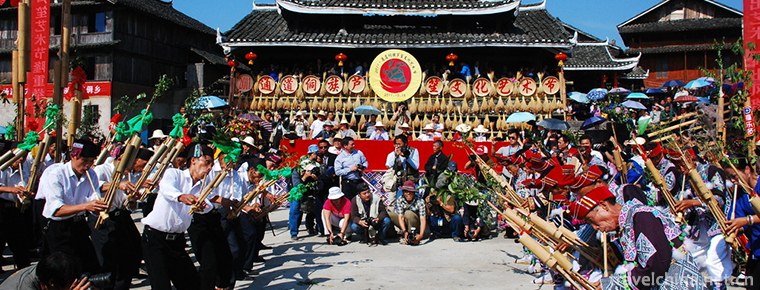
-
Chill chicken rice noodles
Cold chicken noodles, Yunnan snacks, cold rice noodles with ....
Views: 269 Time 2018-10-17 -
Chess cake
Chess cake is a special product of Tangshan District in Hebei Province. It is named for its shape like a small drum and a chess piece.
Views: 169 Time 2018-11-27 -
Daqing Oilfield History Exhibition Hall
Daqing Oilfield History Exhibition Hall is the first original Memorial Hall in China with the theme of petroleum industry, and it is a cultural relic protection unit in Heilongjiang Province. .
Views: 155 Time 2019-01-07 -
Wuzhizhou Island Scenic Area
Wuzhizhou Island is situated in Haitangwan Bay in the north of Sanya City. It is opposite to Monkey Island in the South and is adjacent to Yalong Bay.
Views: 372 Time 2019-02-24 -
Eight treasures sweet rice
Babao sweet rice, also known as Babao rice, is a traditional snack with glutinous rice as its main ingredient. With jujube, lotus seed, Baitai, white fruit, longan meat, green red silk and so on.
Views: 202 Time 2019-03-26 -
Landscape Architecture in Yangzhou
Yangzhou gardens began in the Western Han Dynasty, flourished in the Sui and Tang Dynasties, matured in the Song and Ming Dynasties, and flourished in the Qianlong Period of the Qing Dynasty..
Views: 143 Time 2019-04-21 -
Good luck treasure
Haolaibao is a kind of Chinese Mongolian folk music, singing in Mongolian. Haolaibao means "alliteration" in Mongolian, that is, the first syllabic rhyme of each line of lyrics, so it is als.
Views: 347 Time 2019-05-02 -
Quanzhou North Pipe
Beiguan, also known as Beiqu, Xiaoqu, Quzi, is a kind of traditional folk silk and bamboo music widely spread in Quangang District, Quanzhou City, Fujian Province. China's Beiguan is now only distribu.
Views: 204 Time 2019-06-11 -
Bamboo weaving
The traditional bamboo weaving technology has a long history and is rich in the crystallization of the hard work of the working people of the Chinese nation. Bamboo weaving crafts are divided into fin.
Views: 169 Time 2019-08-10 -
Tongling University
Tongling University is a multi-disciplinary province. Undergraduate Regular institutions of higher learning It is the base for training and training talents of Finance and economics in Anhui province..
Views: 165 Time 2019-11-18 -
Convenient facilities and medical services of Chengdu Giant Panda Base
Chengdu Research Base of giant panda breeding has a tourist service center in the hall on the first floor of the museum, which can provide free convenience services such as microwave heating, drinking water hot water, baby carriage, wheelchair, walking stick, umbrella, needle and thread bag, etc..
Views: 386 Time 2020-12-13 -
Nanchong City honor
"Three products" strategy demonstration city of consumer goods industry, charming city with Chinese characteristics, national garden city and excellent tourism city in China.
Views: 291 Time 2020-12-17
